by Clara Rice
Industry growth is at a breakneck pace, and themed entertainment will soon be given the literal red carpet treatment during the Themed Entertainment Association (TEA) big weekend in Los Angeles that includes the TEA Summit (April 20-21) and Thea Awards Gala (April 22). We asked TEA International Board member and occasional InPark contributor Clara Rice of Jack Rouse Associates (JRA) to interview members of TEA’s brain trust on some trending topics touching the global economy, the state of the industry, the role and importance of the TEA and the continuous pursuit of knowledge.
So expand your horizons and explore themed entertainment around the globe. We hope to see you in Anaheim.
Monty Lunde: Take advantage of new technology
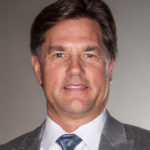 Technifex President/CEO and TEA Founder Monty Lunde will moderate the Technology panel at TEA Summit Day One. The panel showcases Thea Award recipients Slideboarding and Mack Rides’ Inverted Powered Coaster, examining the business motivations behind these technologies and their implications for the industry.
Technifex President/CEO and TEA Founder Monty Lunde will moderate the Technology panel at TEA Summit Day One. The panel showcases Thea Award recipients Slideboarding and Mack Rides’ Inverted Powered Coaster, examining the business motivations behind these technologies and their implications for the industry.
Why is technology so important to our industry, and how has TEA helped in its advancement?
Technological advancements that support the themed entertainment industry are one of the major drivers to creating more amazing, visceral and compelling guest experiences.
The TEA’s value-add to the industry’s technology story is as a conduit for communication between vendors, suppliers and project developers. Designers and conceivers of new attractions often learn about new technologies from SATE conferences and other organized TEA gatherings such as behind-the-scenes tours and member company open houses, or via TEA member booths at IAAPA expos and other trade events. Through the Thea Awards, the TEA recognizes innovative technologies that have a direct impact upon storytelling, placemaking and quality guest experiences.
Advancements in technology can come from any themed entertainment discipline, or from other unrelated industries. Whether the advancements are in Virtual Reality (VR), Augmented Reality (AR), 3D/4D theatrical experiences, new ride technologies, LED lighting, advanced control and safety systems, animation and special effects, or another direction, the TEA highlights these achievements so that others can use these tools to create ever more compelling attractions.
Brian Sands: Unleash the power of data
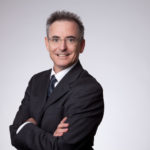 TEA Summit Day One brings “Industry by the Numbers,” a global market forecast presentation led by top economics specialist AECOM, which partners with TEA to produce the annual TEA/AECOM Theme Index and Museum Index, a comprehensive analysis of attendance and related trends at top-performing attractions across the globe. Among AECOM’s presenters include Vice President Brian Sands. (The next Theme Index is due out in early June.)
TEA Summit Day One brings “Industry by the Numbers,” a global market forecast presentation led by top economics specialist AECOM, which partners with TEA to produce the annual TEA/AECOM Theme Index and Museum Index, a comprehensive analysis of attendance and related trends at top-performing attractions across the globe. Among AECOM’s presenters include Vice President Brian Sands. (The next Theme Index is due out in early June.)
Tell us about the relationship between TEA and AECOM as regards the Theme Index and what folks can expect from your panel.
It is a great honor and serious responsibility for AECOM to prepare the Theme Index, providing us with the opportunity to carefully analyze attendance and other industry trends, and also giving us the chance to discuss these with a wide range of industry stakeholders.
The Index has grown in complexity, comprehensiveness, and sophistication over the years, adding more segments of the business, broadening its geographic coverage, and increasing the depth and quality of the analyses. With this growth, the industry has warmed to the idea over the years, and this has helped with industry transparency, cohesiveness, and utility, to the point that it is now the industry standard, with its release eagerly awaited by all.
Our Industry by the Numbers panel on Summit Day One provides the attendees with an overview across the globe of major trends affecting the commercial and cultural attractions industry, including early insight into figures and discussions detailed in the Theme Index. It also provides us with a unique opportunity to present these early insights to an in-person audience and gather their questions about the topics discussed and associated issues, facilitating a discussion that compliments the written report.
Adam Bezark: Move with the times
 Summit Day Two showcases industry blockbusters, offering case studies of the projects that will be celebrated at the following evening’s black-tie, Thea Awards Gala.
Summit Day Two showcases industry blockbusters, offering case studies of the projects that will be celebrated at the following evening’s black-tie, Thea Awards Gala.
Over the past two decades, projects nominated for Theas have evolved with the industry, growing in technological complexity, expanding in geography, and exploring new methods of storytelling. TEA Thea Awards Committee Chair Adam Bezark of The Bezark Company offered his thoughts.
How is the changing culture of the themed entertainment industry reflected in the Thea Committee’s approach and type of project submissions you are now seeing?
The ways are numerous and striking. There is the great new trend toward incredible, mega-scale story environments – such as Universal’s Harry Potter lands and Disney’s Cars Land. This has set the stage for even bigger and grander projects to come. There’s also the explosion of new international projects of ever increasing size and quality.
There is also rapid acceleration in entertainment technology: new types of show-oriented ride systems, sophisticated combinations of real spaces and advanced media, and increasingly smart interactive technologies. The tools keep getting better.
Because of these advancements, there are whole new categories of work that expand our industry and our ability to tell new, ever more engrossing stories, and fuel growth in other categories such as museums and visitor centers, an increasingly important part of our industry.
The number of Thea Award submissions hit an all-time high this cycle. We received over 200 project submissions in 2016, with over 50% coming from outside the United States. The Thea Awards are getting bigger, and better recognized, every year… and that’s super exciting for all of us.
Thomas Megna and Margaret Wong: Take advantage of the burgeoning China market…
Recently, I had the great pleasure of co-producing the “TEA Talks LIVE! Working in China,” professional development session. Among those sharing insights were TEA Asia Pacific Division President Thomas Megna of Megna Entertainment Group and Silkroading Entertainment, and Margaret Wong, California Center CEO and a member of the TEA Asia Pacific Division Board. Both are located in China with years of experience working there on an everyday basis.
Why conduct business in China, and what are some of top recommendations for breaking into the market?
 Margaret Wong: China right now is changing. The middle class is representing over 50% of the population… and getting more involved with mobile phones, apps, online buying, sports, and entertainment. All these areas are a huge market for the United States to get into China.
Margaret Wong: China right now is changing. The middle class is representing over 50% of the population… and getting more involved with mobile phones, apps, online buying, sports, and entertainment. All these areas are a huge market for the United States to get into China.
[But] doing business in China is not as simple as you think… First of all, you need a lot of patience. China is different from the US, all the way from decision making, distribution systems, [to] the corporate set up. Secondly, you have to do a lot of due diligence… to understand how China behaves, how the decisions are made and how the organizational structure is going to be. We need to be able to sell what the Chinese want and what the market needs. It’s not as much translation as more of what they are looking for and how the companies work.
Thirdly, I recommend having good partners in China. You will be better off penetrating the China market with its unique government structure and taxes and currency if you are able to find some type of local partner you can trust and work with.
 Thomas Megna: The market is exploding right now. I have many developers coming to me saying, “I need good, qualified design companies and turnkey solution companies.” And so there are numerous projects, 100 or more different themed environment projects that are happening all over China right now… so if you’re anxious to come, if you want to get involved, the possibilities are definitely here… Be cautious, and join the fun.
Thomas Megna: The market is exploding right now. I have many developers coming to me saying, “I need good, qualified design companies and turnkey solution companies.” And so there are numerous projects, 100 or more different themed environment projects that are happening all over China right now… so if you’re anxious to come, if you want to get involved, the possibilities are definitely here… Be cautious, and join the fun.
David Willrich: …but don’t forget about Europe
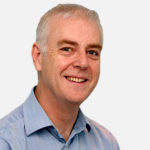 With all the buzz surrounding the burgeoning China market and park expansions in North America, it’s important to remember that many landmark achievements of the industry have come from Europe. TEA International Board President and DJ Willrich Managing Director David Willrich, has no plans for us to forget.
With all the buzz surrounding the burgeoning China market and park expansions in North America, it’s important to remember that many landmark achievements of the industry have come from Europe. TEA International Board President and DJ Willrich Managing Director David Willrich, has no plans for us to forget.
How is Europe woven into the fabric of the themed entertainment industry?
European parks can only dream of the attendance numbers (and dollars) that the top US parks enjoy. However, guest expectation is still very top-of-mind, leaving European creators figuring out how they can deliver illusions, quality and world-class attractions on significantly lower budgets.
Over the last 10-15 years, I would say that standards of many European parks have made a quantum leap in quality, partly due in part to market pressure but also partly due to a more experienced supply chain. More and more frequently, European companies have worked on projects driven by top creative teams and thus have a much better idea of the standards required. In fact, I would go so far as to argue that creative teams have to be even more creative in coming with ideas that can scale to a budget but still deliver at the top level. Technology plays a major role here as well. It keeps getting cheaper to deliver the best and most immersive effects.
Many European attractions have restrictions not experienced in other countries; particularly historic buildings or sites. Planning and environmental pressures can seriously curtail ideas, setting parameters that can be quite restricting and challenging. Our ‘Historic Futures’ themed SATE conference in Europe (May 4-5) will be addressing this very point.
The TEA plays a great role as an industry communicator, our events are growing in stature, and members around the world meet and chat with the best people in the industry. It all helps in setting and improving standards in all regions.
Christine Kerr and Kile Ozier: Never stop learning, and leave your comfort zone
Perhaps my greatest takeaway in reaching out to these TEA leaders is that learning is life-long, and even as we reach the pinnacle of our careers, we never have all the answers. Christine Kerr of BaAM Productions is TEA Past President and current Educational Programming Chair. Kile Ozier, a member of the TEA International Board, is co-chairing the “Elephants in the Room” segment of TEA Summit Day One.
What’s the motivation behind the “Elephants” discussion topics, which may challenge some people’s comfort level?
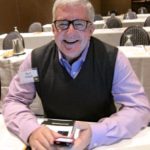 Kile Ozier: People tend to fear what they don’t know and are skittish about some topics. The idea behind “Elephants” topics is to de-mystify and defuse such conversations so that people may acquire a fresh and clear, topical and relevant understanding of issues and events that might otherwise seem volatile or delicate (or of which they simply were not aware). Ideally, that information empowers the way they do business around the world.
Kile Ozier: People tend to fear what they don’t know and are skittish about some topics. The idea behind “Elephants” topics is to de-mystify and defuse such conversations so that people may acquire a fresh and clear, topical and relevant understanding of issues and events that might otherwise seem volatile or delicate (or of which they simply were not aware). Ideally, that information empowers the way they do business around the world.
How can the TEA contribute to long-term professional development?
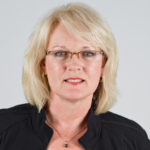 Christine Kerr: The TEA Summit focuses on professional development through a business lens. The Day One sessions are curated to share trends and explore new topics that will have an impact on business practices. They provide attendees with a look at the “how” and “why” of doing business in the themed entertainment industry, with less focus on what the project might be. Day One is also an environment for frank and open conversation.
Christine Kerr: The TEA Summit focuses on professional development through a business lens. The Day One sessions are curated to share trends and explore new topics that will have an impact on business practices. They provide attendees with a look at the “how” and “why” of doing business in the themed entertainment industry, with less focus on what the project might be. Day One is also an environment for frank and open conversation.
Summit Day Two (Thea Case Studies) is one of the most incredible opportunities ever: to learn the story behind the development of a collection of very different experiences from around the globe, all being recognized with Thea awards for outstanding achievement in a given year. The attendees are provided with unparalleled access to insights and information that will inform the work they do, regardless of industry sector.
SATE is TEA’s creative conference, looking at the various elements that come together to create great experiences: Storytelling + Architecture + Technology = Experience. SATE explores themes and trends and the varied ways experience creators are introducing new and interesting ideas into their work.
SATE Academy Days combine the creative and business perspectives, in that they often combine site visits to attractions or experiences along with presentations by experience creators and owner operators. The SATE Academy Day program offers a look at the why, how and what of the themed entertainment industry.
All these programs together, combined with 70+ other TEA events around the world throughout the year, provide attendees with a very well-rounded perspective of the industry and all that goes into creating compelling places and experiences. TEA will continue to develop and expand its educational offerings in response to the needs of the industry.
 Clara Rice ([email protected]) is Director of Communications at Jack Rouse Associates (JRA).
Clara Rice ([email protected]) is Director of Communications at Jack Rouse Associates (JRA).






